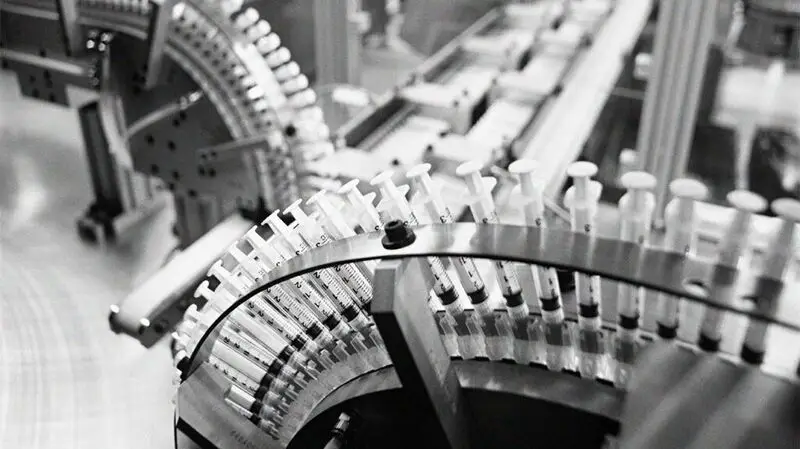
- In 2020, more than 495,000 adults globally received a diagnosis of pancreatic cancer.
- More than 90% of people with a common type of pancreatic cancer have KRAS mutations.
- Researchers discovered that certain KRAS mutations in pancreatic cancer are associated with better survival rates compared to other mutations in the disease.
- The findings add to existing research targeting KRAS mutations to develop a cancer vaccine.
In 2020,
In the United States, pancreatic cancer is the
Pancreatic ductal adenocarcinoma is the most common type of pancreatic cancer — accounting for about
Previous research shows that traditional cancer treatments such as
More than 90% of people with pancreatic cancer have mutations in their
Now researchers from The University of Texas MD Anderson Cancer Center have discovered that people with pancreatic cancer with certain types of
The study, recently published in the journal
Dr. Dan Zhao, researcher in the Department of Gastrointestinal Medical Oncology in the Division of Cancer Medicine at The University of Texas MD Anderson Cancer Center and co-lead author of this study explained to Medical News Today:
“Pancreatic ductal adenocarcinoma is projected to be the second leading cause of cancer death, but its treatment options remain limited. The 5-year overall survival rate for patients who have metastatic disease is less than 5%. The incidence of pancreatic cancer is rising. Effective treatment for pancreatic ductal adenocarcinoma is in urgent need.”
The pancreas is situated behind the stomach in the upper left portion of the abdomen.
As part of the digestive system, the pancreas creates enzymes used to break down food and also makes insulin to help keep a person’s blood sugar levels steady.
Pancreatic ductal adenocarcinoma forms in the cells that line the ducts of the pancreas.
Pancreatic cancer is
Pancreatic cancer treatment depends on what stage the cancer is caught. If the cancer has not spread to other areas of the body,
In its later stages, past studies show
According to Dr. Zhao, the Kirsten Rat Sarcoma Viral Oncogene Homolog (KRAS) gene was initially isolated from cancer cell lines more than 30 years ago.
In healthy environments, the KRAS gene plays an important role in cell growth and turnover. However, if the KRAS gene becomes mutated it may start causing cancer cells to grow and spread.
“The protein it encoded is a
“The KRAS gene is the most mutated
In addition to pancreatic cancer, previous studies have also found KRAS mutations in:
colorectal cancer lung cancer breast cancer
For this study, Dr. Zhao and her team analyzed data from 803 people with pancreatic ductal adenocarcinoma.
The researchers found that study participants with
Additionally, the scientists found that KRAS G12D mutations were correlated with metastatic disease and KRAS G12R mutations were common in well- to moderately-differentiated tumors.
“The results are not surprising,” Dr. Zhao said. “They are consistent with the findings in other types of cancer and the biochemical features of different KRAS mutation subtypes.”
“KRAS G12R is most prevalent in pancreatic ductal adenocarcinoma (~15%) but rare in other cancers (~1%),” she continued.
“It is known that KRAS G12R mutation has difficulty growing cancer in conventional mouse models. It was reported that the KRAS G12R mutant has different downstream signaling pathways and the KRAS Q61 mutant was more oncogenic in laboratory research. This study is one of the first and largest studies in pancreatic cancer patients to elucidate the molecular and clinical features of KRAS-mutated pancreatic ductal adenocarcinoma.”
— Dr. Dan Zhao, co-lead study author
Dr. Zhao said that targeting KRAS has been challenging until the recent discovery of the
“Currently, two KRAS G12C inhibitors —
In addition to this study, Dr. Zhao is the principal investigator of a clinical trial that she said could provide more information on the safety and efficacy of Adagrasib monotherapy in pancreatic ductal adenocarcinoma.
“I hope the results of this trial can help the development of KRAS-targeted therapy and guide future combination therapy strategies for targeting KRAS,” she added.
The KRAS G12C inhibitor is currently driving research toward a potential cancer vaccine.
For example, earlier this year the phase 1 clinical trial results for ELI-002 — a potential vaccine for colorectal and pancreatic cancers — showed it could help prevent the reemergence of cancer in those who had already experienced cancer treatment.
“The current data for pancreatic cancer vaccine in phase 1 clinical trials are exciting,” Dr. Zhao said. “I look forward to seeing the results in more patients in phase 2 trials, especially with randomized controlled trials soon.”
MNT also spoke with Dr. Anton Bilchik, surgical oncologist, chief of medicine, and director of the Gastrointestinal and Hepatobiliary Program at Providence Saint John’s Cancer Institute in Santa Monica, CA, about this study.
Dr. Bilchik said this study is very important because pancreas cancer is a deadly disease, however, there has been very little progress over the last 20 years in prolonging survival.
“KRAS is a really important target for a vaccine,” he continued. “I think one of the issues is we just don’t know how long the benefit is because some have speculated that vaccine therapy may only have a very short-lived response. And also there are many different KRAS subtypes so we’re trying to learn which particular subtype may be the most important to target.”
“So there’s still a lot of work that needs to be done, but definitely very exciting because no immunotherapy or vaccine therapies so far has been shown to be beneficial in pancreas cancer,” Dr. Bilchik stated.





